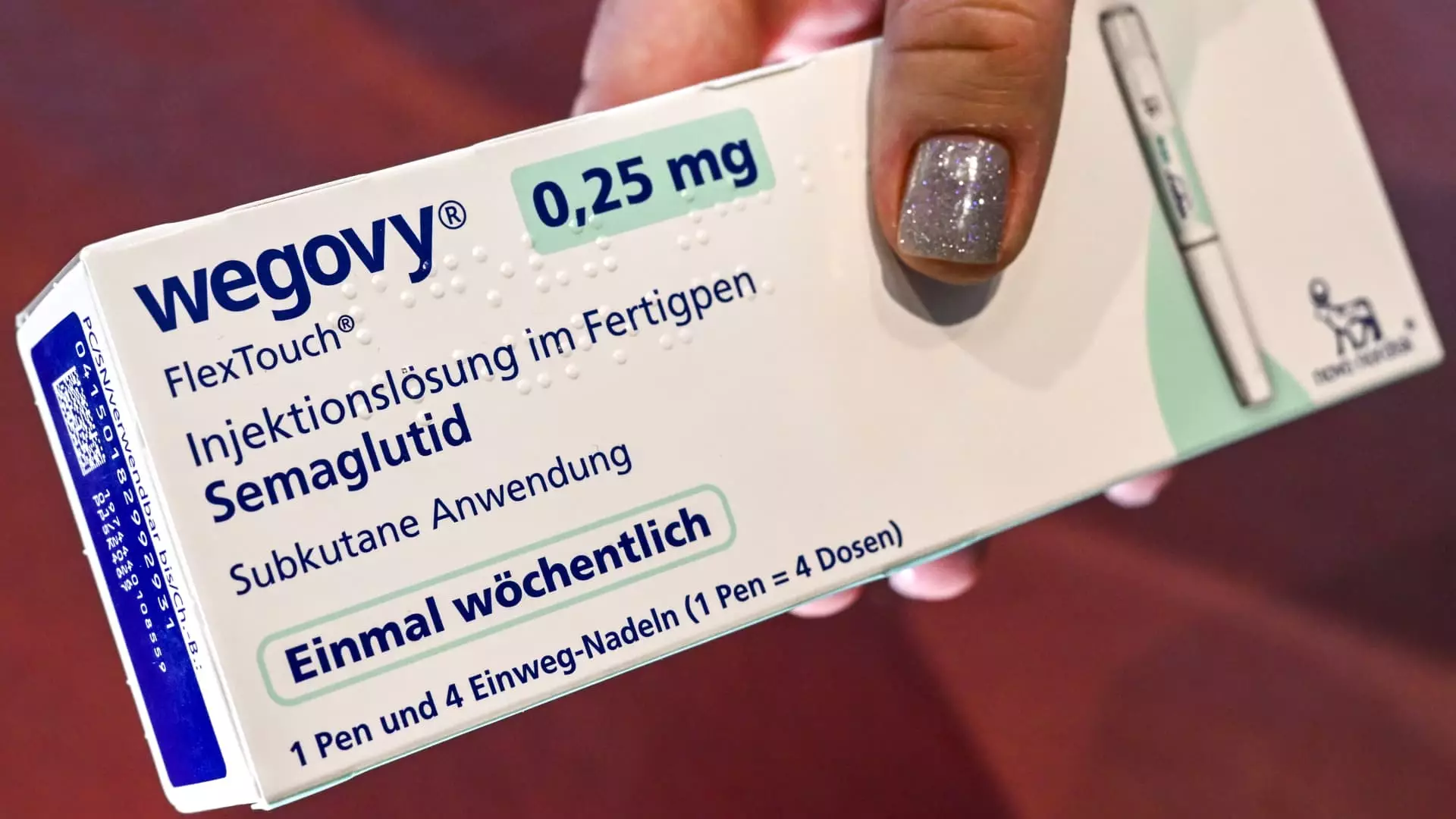In an era where patient safety should reign supreme, the troubling news of Novo Nordisk ending its partnership with Hims & Hers raises crucial ethical questions. The pharmaceutical giant’s decision stems from alarming allegations surrounding the telehealth company’s complacency in promoting cheaper, unregulated alternatives to its notorious weight-loss drug, Wegovy. This is not merely a corporate maneuver; it’s a red flag for anyone who values integrity in the healthcare system. The consequences of such actions reverberate far beyond market fluctuations for stakeholders—it becomes a matter of public health.
The Dangers of Deceptive Marketing
Novo Nordisk accused Hims & Hers of partaking in deceptive marketing practices that jeopardize patient safety. As a center-right liberal, I find these practices not only unethical but indicative of a larger trend in the telehealth industry: prioritizing profit over patient welfare. With Hims & Hers stock plummeting by approximately 20% in the wake of this announcement, the implications are grave. When a company falters on its ethical obligations, it exposes vulnerable patients to unsafe alternatives dressed up as ‘personalized medicine.’ The marketing strategies deployed here risk normalizing a culture where the ends justify the means—a philosophy that invariably leads to chaos in healthcare.
The Legal Labyrinth of Compounded Drugs
During critical shortages, the FDA allows for the compounding of medications, but this is intended as a temporary measure. Hims & Hers’ approach to mass-producing these compounded alternatives—allegedly under the “false guise” of personalization—challenges the very framework upon which these laws were built. Compounding should cater to individual needs, not serve as a backdoor ticket for the unregulated proliferation of look-alike drugs. In an era where misinformation spreads like wildfire, the allure of cheaper substitutes can easily trick the uneducated consumer, swaying them towards potentially dangerous products.
Global Supply Chain Concerns
Moreover, the investigation conducted by Novo Nordisk revealed that the active ingredients in these knock-offs are sourced from questionable suppliers in China. This raises unsettling questions about the quality and safety of medications being offered to patients. As consumers, we must be wary of a healthcare system that allows such a disjointed and opaque supply chain to dictate our treatment options. It begs the question: how can we trust companies that sidestep rigorous regulations, purportedly in the name of patient choice and accessibility?
A Call for Accountability
What we see here is not merely a failing partnership; it is a symptom of a broader crisis within the telehealth landscape, where accountability wanes in favor of aggressive marketing and market share. Novo Nordisk’s move to terminate ties with Hims & Hers should compel all stakeholders in healthcare—patients, providers, and regulators—to demand more. While access to medications like Wegovy is crucial in treating chronic diseases, it cannot come at the expense of safety and ethical standards. Despite the allure of personalized healthcare, the risks associated with unregulated alternatives are far too high to ignore. Such a situation warrants a systemic overhaul that prioritizes patient safety over profits, lest we suffer the repercussions of a broken healthcare system.

